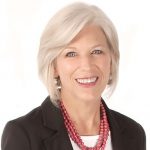Editor’s Message

*This is an article from the Fall 2021 issue of Contentment Magazine.
As fall moves into the northern hemisphere and the pandemic refuses to loosen its grip on our world, evolving questions and continued confusion have replaced our (unrealistic) hopes of returning to pre-pandemic “normal.” By nature, we love certainty and feeling that there is a “right” answer to every choice, but the issues that plague us now are complex and play out polarity theory—there is an upside and downside to every choice we make. There is no clear “right” answer to what’s best for our future or the future of our children or our planet, and that alone can feel stressful.
In this sea of uncertainty and stressors, what can we “control?” What can we do to take care of ourselves and those around us, honor the layers of grief, and build up our stamina and resilience? How can we support the children and their educators facing yet another year of disruption and conflict? How do we better integrate mental well-being into our life choices and hopefully, culture?
One thing is certain—we need each other. Together we can make sense of what we are feeling and find ways to emerge stronger. Once again, I am so proud to share the wisdom of this amazing group of contributors, experts in the field helping us to understand our minds and hearts, make some sense of the challenges, and learn the science-based, concrete choices we can make now to thrive.
As the school year begins, we wanted to give particular support to the teachers (what heroes!) and the children whose lives and education have been so disrupted. We have included several articles chock full of specific tools to help them cope. You may see some repetition of suggestions across several pieces—please know that these are the tools we know make a difference and often practice ourselves. Jen Butler, MEd, BCC, DAIS reviews the many challenges plaguing teachers these days—you are not alone if you are feeling more stressed! Then she provides a comprehensive list of tools to make a difference right away.
Sharon Montes, MD, FAIS expands on her Resilience Recipe in the Summer 2021 issue with a wealth of pragmatic tools to help us prepare our minds for learning and teaching. Meeting the uncertainty and stress ahead with a well-stocked toolkit builds the coping confidence we need to shift the potential toxicity of stress to resilience. Dr. Montes even offers more resources at the end of her article.
I dream of a world in which our kids start learning critical stress management life skills and learn about the power they have within to make a difference in their experience of life, health, and happiness from the moment they enter the world. And while more and more schools do offer these, too many adults never had this education and struggle to help their kids with stress, often feeling shame for their own stress. My article discusses talking to kids about stress, because it is a wonderful opportunity to grow resilience and well-being together. I hope it empowers you to have conversations that build confidence.
Another timely topic, languishing, is addressed by, Charles Grantham, PhD, MSH, FAIS, APF together with his colleague, Rebecca Ryan, APF. This term has been tossed about by the media as so many folks struggle to understand this sort of malaise and loss of vitality that seems pervasive in the pandemic fatigue phase. Together they dive deeply into the meaning of languishing as it exists on a spectrum between mental illness and flourishing. They discuss the confluence of factors that landed us here, and the choices we can make to move forward out of languishing into flourishing. The principles work for building all types of psychological immunity—the key to navigating the uncertainty with resilience and health.
Michelle Anne, PCC, DAIS illustrates the power of awareness and consciously dealing with the feelings and sensations of discomfort with a story which will resonate for many. How do we get our calm back when we are triggered? She offers her experience blending Eastern and Western approaches to rewire our minds to move beyond the automatic stress reaction. In so doing we can create more calm and stable environments in ourselves and in our homes, setting us up to approach our changing world from a more secure and positive foundation.
And lastly, while Contentment traditionally focuses on stress more than trauma and mental pathologies, we recognize the full spectrum and enormity of emotional experiences during these tumultuous times. Grief, in particular grief associated with sudden death, has touched too many, challenging some of us firsthand, and affecting many more who care about those who are grieving. Jeff Jernigan PhD, BCPPC, FAIS offers a short piece on how to navigate grief in the case of sudden death. He reminds us how personal the process of grief is. We need to be careful about our expectations, mindful of the ripple effects, and find ways to be present with such complex emotions.
Pick out a few ideas and tools that feel helpful to you and experiment or play with them with curiosity and compassion. Subtle shifts in how we frame our stress and respond to it can make such a huge difference in how we experience it. Share your insights; share these resources. Together we can emerge stronger and healthier!
Take care of YOU,
Cindi
